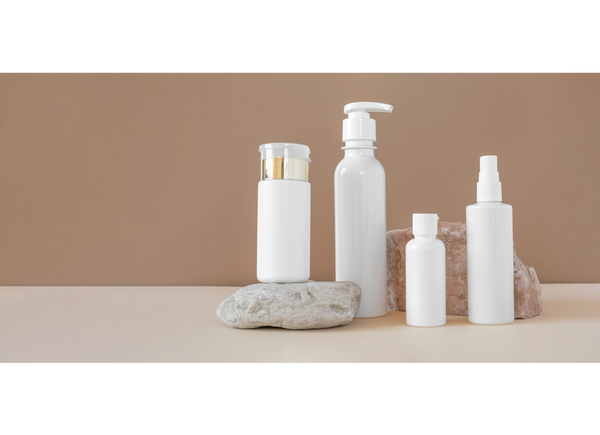
"Aha moments", continual experimentation, and harnessing Mother Nature's magic. These have long been central to the development of superb skincare. 6000 years ago, Egyptians sourced local clay and oil from olives to nurture their skin and protect it against insects and the elements. In Ancient China, herbs and sesame seeds were topically used and eaten medicinally to maintain skin health and the First Nations people of the southern U.S knew the power of Jojoba oil long before Western practitioners recognised it.
In the past decade, however, a subtle yet worrying shift has occurred in our industry. Beauty brands are multiplying at an astonishing rate, and the majority appear to be spending less time formulating products for healthy skin and far more time formulating marketing strategies.
Businesses wanting to turn a profit is nothing new, so what has our alarm bells ringing?
The answer: white-label skincare.
What is white-label skincare?
A white-labelled skincare product is a generic formulation that has been mass-produced by a contract manufacturer. The product is either sold as is or lightly tweaked with the latest 'super' ingredient before being packaged in a variety of containers, ready to be resold by multiple different labels.
This financially-geared process now dominates a significant percentage of the skincare market. Most of the influencer or celebrity-endorsed or 'co-created' brands originate in this way, and many others which bill themselves as 'artisan'. If you have ever looked at a bunch of products and got that 'same soup, reheated' feeling, now you know why. It's all a far cry from the attentive, knowledge-based skin nourishing practices we've used to create skincare for millennia.

Why white labelling is a scam
This system is broken for so many reasons. It's an innovation drain which rewards branding and marketing over true ingredient formula breakthroughs. It prioritises style over substance, plays into shallow influencer culture and makes it impossible for customers to know if they're getting value for money. Here are our biggest concerns with white-labelled beauty;
- Lack of customisation and ingredient control. Companies that sign up for white-labelled products have very little involvement when it comes to the formulations made and packaged for them. The large contract manufacture calls the shots when it comes to ingredient sourcing, production and process. As their own brand won't be emblazoned on the bottle, they have a strong incentive to cost-cut to improve their own profit margins. If the brands they are selling to aren't aware of the subtleties that separate high-quality ingredients from shoddy ones, why overspend on the premium ingredients?
- High marketing costs = high production costs. With limited options for product customisation, companies try to get ahead of their competitors by turning up the volume on their marketing campaigns to 11. Marketers know that customer trust can be cultivated through being repeatedly exposed to brand words and images, so rather than sourcing the highest-quality ingredients, they invest in a tidal wave of social media advertising, pop-ups and influencer marketing. They pass this cost on to the consumer, who believes they're paying extra for high-quality, thoughtfully-formulated products instead of extravagant advertising budgets.
- Slavish fad following. White-labelled skincare follows the ever-changing tides of what's trending, rather than what really works. If a popular celebrity with a naturally radiant complexion chalks up her youthful glow to something in her skincare regime, you can bet within a couple of months multiple skincare brands will be selling a product featuring this 'magical' ingredient. A healthy degree of skepticism is a good idea when it comes to fads - remember, Renaissance Era women used mercury and lead on their faces for cosmetic appeal, and history is prone to repeat itself!
We're not falling for it
Despite the influx of white-labelled products on the shelves these days, the story isn't all grim. Talented people who are passionate about healthy skin but disillusioned with the status quo are still honing their craft and are, right now, elbows-deep in cultivating real skincare that serves us.
At MV, that looks like Sharon McGlinchey, our founder, working in our beachside Brookvale warehouse daily to ensure that every plant-based heaven-scent product we ship matches her sky-high standards. We're glad to be on the same team as other small business owners in skincare (our so-called 'competitors') who aren't buying into the smoke and mirrors of white labelling either. Together, we will continue on our path to protect, heal and nurture the biggest organ of the body, our skin.





